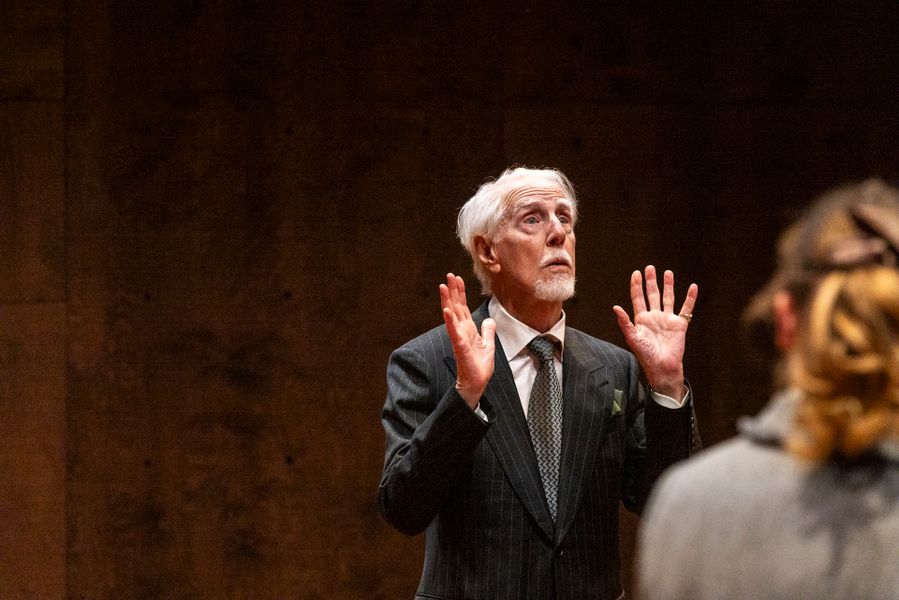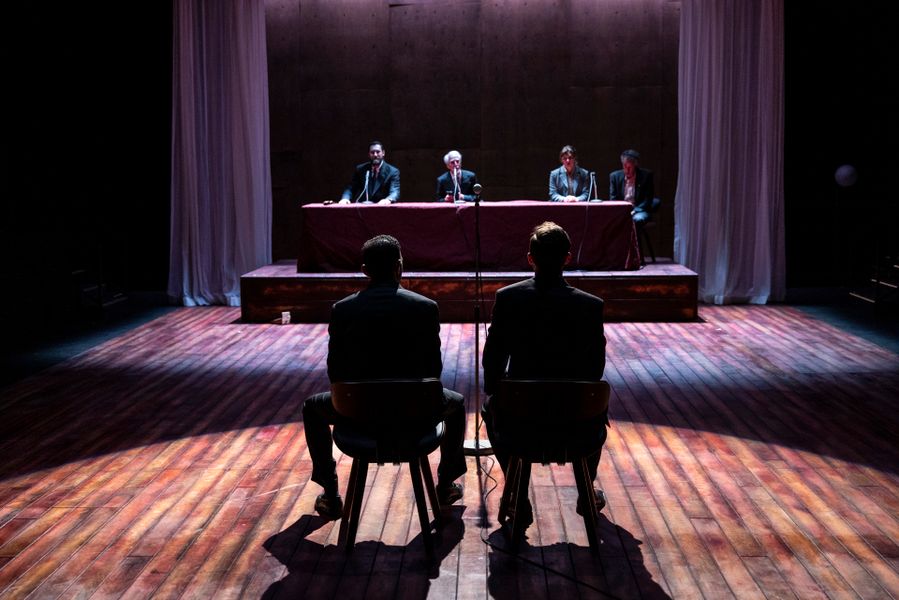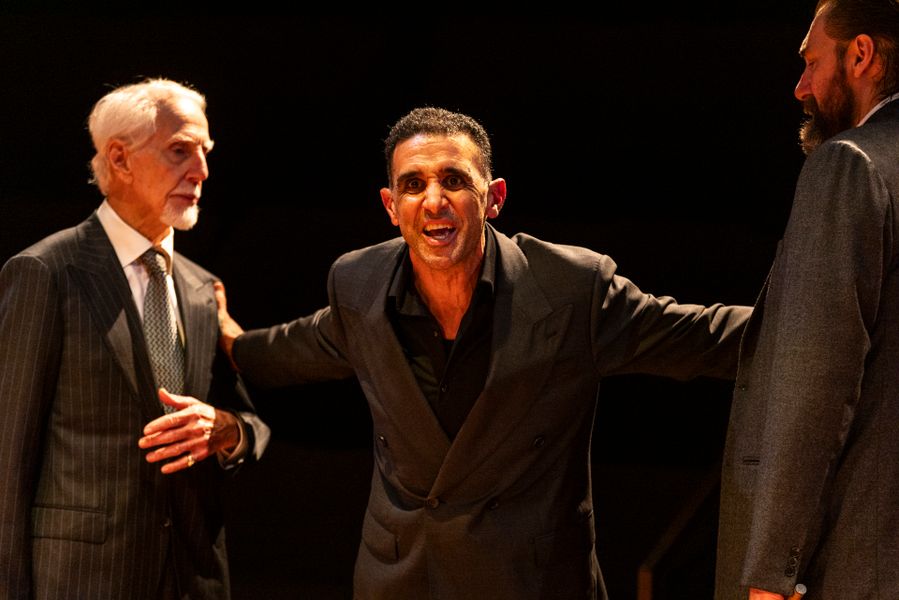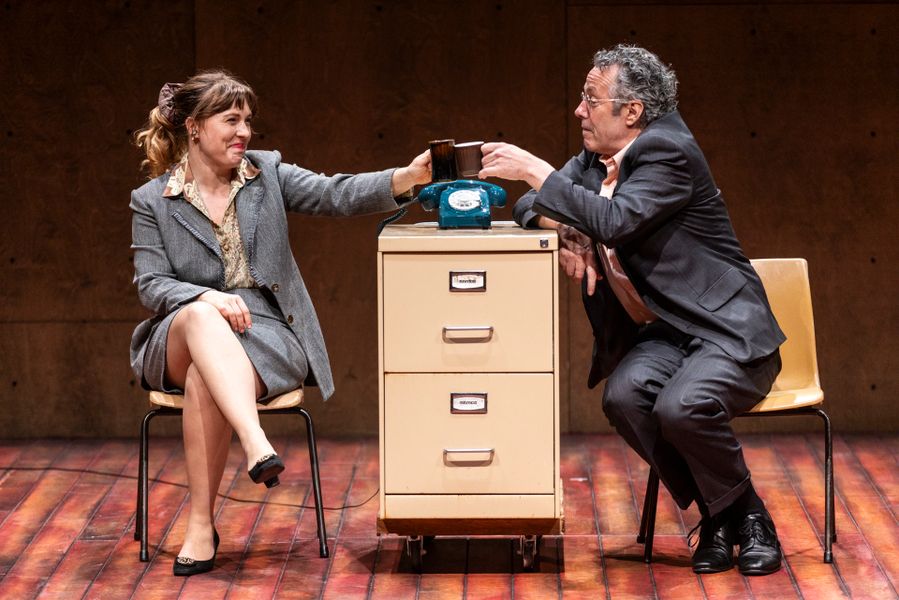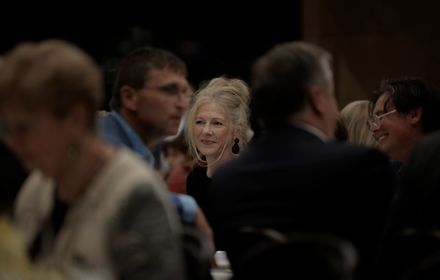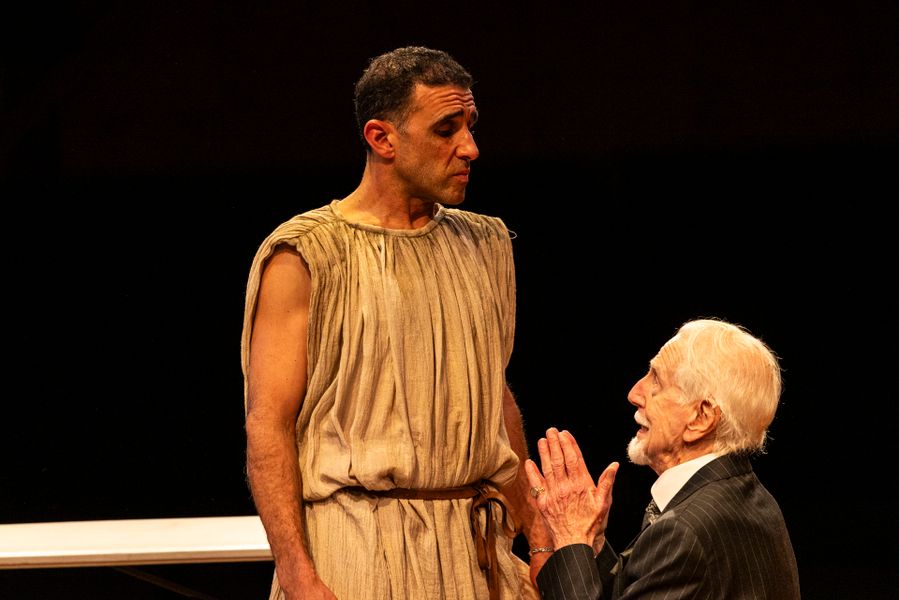
One of Shakespeare’s lesser-known tragedies reminds us how democracy may not collapse overnight, but it can corrode from within.
Shakespeare’s Coriolanus is about an elitist tyrant who tries to crush a fledgling democracy under his heel. It is also about a principled war hero who refuses to play the game of retail politics.
At the recent opening night of Bell Shakespeare’s latest production, I found myself repulsed by the tyrant and charmed by the hero. I was horrified by the tyrant’s vicious arrogance, and inspired by the hero’s unshakeable integrity. This being Shakespeare, of course, the tyrant and the hero were the same person – Caius Marcius Coriolanus.
Of all the reasons we keep returning to Shakespeare – the romance, the high stakes, the poetry, the dirty jokes – my favourite is the ambiguity. Shakespeare is never didactic. He gives us room to think. He presents human beings with all their flaws, and leaves the interpretation up to the audience.
As a result, each generation, each society, each individual, will have a unique experience of the plays. Greg Doran, the former artistic director of the Royal Shakespeare Company, is fond of saying that Shakespeare is like a magnet that attracts the iron filings of whatever is going on in the world.
One of Shakespeare’s lesser-known tragedies, Coriolanus offers a disturbingly prescient study of the deep tensions between democratic governance and authoritarian allure. It shows us how easily democracies falter when public trust erodes, when leaders disdain the governed, and when the governed, in turn, crave the certainty of strongmen over the messiness of debate.

Coriolanus was written in England at a time of rising autocracy, when the gulf between rulers and ruled was growing, and civil disturbances were routinely suppressed with brutal force. Its themes must have resonated powerfully with the anxieties of that time. More recently the play has been used to advance various, sometimes diametrically opposed political agendas. It has been interpreted as both a pro-fascist propaganda piece and a pro-democracy cautionary tale, and has been variously banned and promoted, depending on the preoccupations of each society.
TS Eliot called Coriolanus Shakespeare’s “most assured artistic success”. It is also Shakespeare’s most political creation. It’s full of debate and deeply felt arguments about what it means to live in and defend a society, to take care of each other. What does a society demand of its leaders? Of its citizens? The Rome Shakespeare portrays is built on the belief that “valour is the chiefest virtue”, but at what cost?
Honour and valour are “performed” in this society through shocking acts of violence. Coriolanus’ mother, Volumnia, boasts about his bloody exploits on the battlefield. And his friend Menenius breathlessly catalogues his war wounds, like a sports fan reeling off his favourite player’s stats: “One in the neck and two in the thigh – there’s nine that I know …”
The play takes a sharp turn when Coriolanus returns from war and is urged by the elites to run for consul – the state’s highest political office. To do so, he must switch his performance to humility and beg the plebeians for their votes, or their “voices”. He tries, but he just can’t go through with it. And when he eventually denounces his constituents as a “common cry of curs”, his fate, and that of Rome, is sealed.
Coriolanus reminds us that democracy cannot be taken for granted. It is a delicate relationship – a mutual, if often tense, trust between rulers and ruled. For Coriolanus, democracy is weak because it requires compromise. For the citizens, leadership without empathy is toxic. This mutual suspicion smoulders until it explodes.
In the end, Coriolanus is not a cautionary tale about a single man’s pride or a crowd’s volatility. It is about what happens when political institutions lose moral credibility – elections feel empty, public discourse becomes performance, and both leaders and the electorate cease to believe in each other’s legitimacy.
Democracy may not collapse overnight, but it can corrode from within. Inequality, intolerance, apathy and disinformation all contribute to the gradual erosion of trust. As we face our own moment of democratic fragility, Coriolanus offers clarity: democracy is not self-sustaining. It must be defended. Not just with laws and institutions, but with respect, truth, accountability, and above all, our voices.
James Evans is executive director of Bell Shakespeare. Coriolanus plays in the Neilson Nutshell, Sydney until 19 July, then the Arts Centre Melbourne 24 July-10 August.
